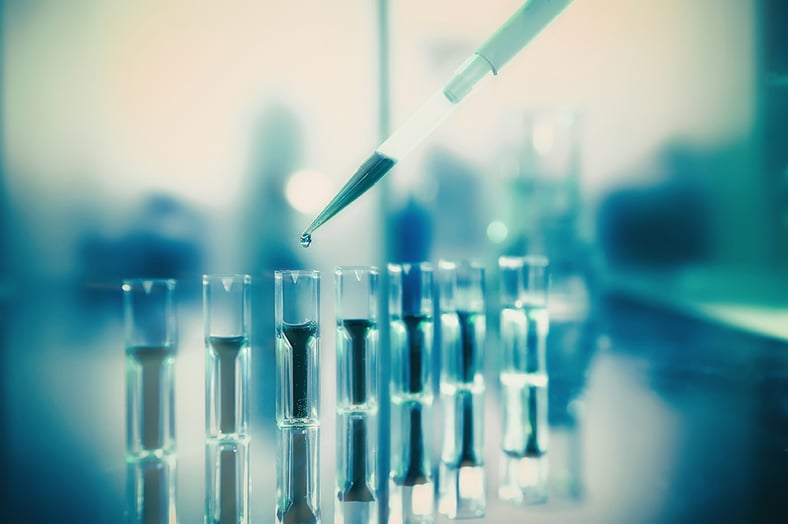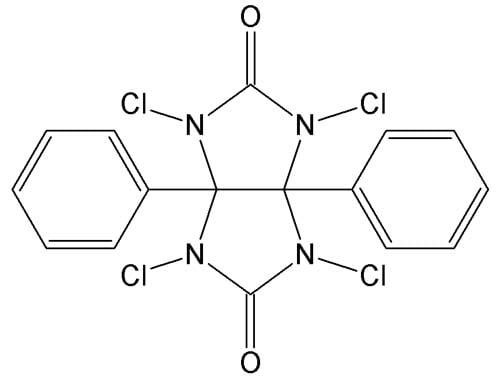With so many protein assays to choose from, each with its own advantages and limitations, you have to consider their suitability for the application. In some instances, it can be necessary to utilize more than one type of assay. Here, we discuss how to select the most appropriate protein assay.
DNFB-Sanger’s reagent for detection of free amino acids
1-Fluoro-2,4-dinitrobenzene (DNFB), also known as Sanger’s reagent, was first used by Sanger to detect free amino acids of Insulin. DNFB undergoes nucleophilic aromatic substitution with the N-terminal amino group of a peptide or protein. After hydrolysis of the peptide or protein, the individual amino acids separate and only the labeled N-terminal amino acid can be detected by a colorimetric detection at specific wavelength. DNFB is hence used in protein sequencing to determine N-terminal amino acid.
1,3,4,6-tetrachloro-3α,6α-diphenylglycoluril (Chloroglycoluril), also known as Iodo-Gen®, is one of the best reagents used for iodination of proteins, hormones, antibodies, viruses, cell membranes, etc. This method was first developed by Fraker et al. This method of iodination with Iodo-Gen® is simple and inexpensive. Iodo-Gen® is water-insoluble and hence used in solid-phase iodination. Iodo-Gen® is used to incorporate radioactive iodine in aromatic amino acids like tyrosine. It iodinates proteins in oxidizing conditions, so there is no need for using excessive reducing agents that affects protein stability. The proteins are not directly subjected to oxidation in this method as the reagent sticks to the wall of the tube and protein is in solution. Either Iodo-Gen® is coated on the walls of glass vials or on polystyrene beads. Iodo-Gen® is dissolved in an organic solvent and the organic solvent is removed from the vial by using nitrogen. The Iodo-Gen® that sticks to the wall of the vial or beads later iodinates proteins in solution. Protein can be separated easily from unreacted reagent as Iodo-Gen® is water-insoluble.
Topics: Protein Labeling
The polymerase chain reaction is a widely used technique for amplification of DNA products for genetic studies, DNA fingerprinting, clinical diagnostics, forensics and many more. Non-specific amplification of PCR products and the formation of primer dimers are the major problems during a PCR reaction. The main reason is due to the mild activity of polymerases at low temperatures and the binding of primers at nonspecific sites. As a result, even before the start of PCR amplification non-specific gene products and primer dimers are formed. The yield of target DNA is reduced as the polymerase, nucleotides, and primers are consumed. Hot start PCR methods are used to avoid this problem.
Topics: Molecular Biology







